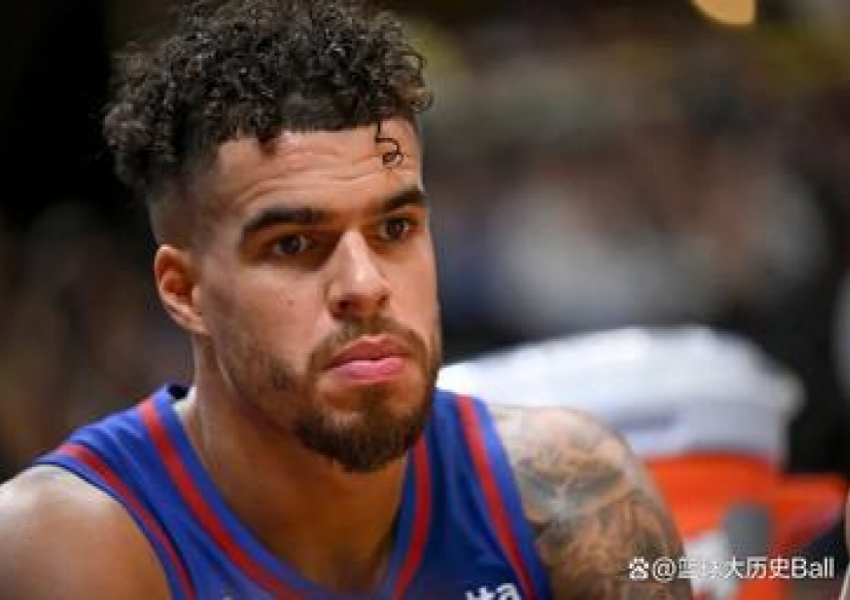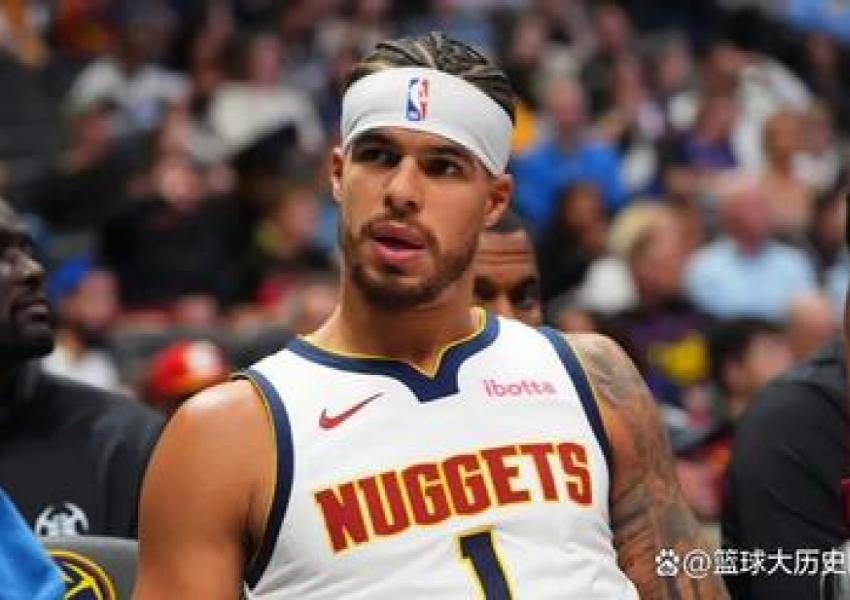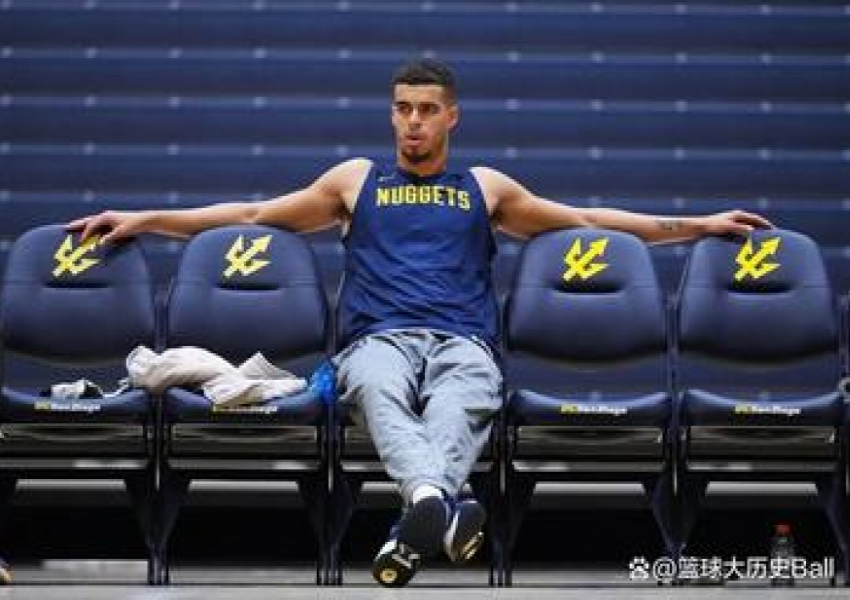Back-to-Back Second-Round Struggles: Is Michael Porter Jr. on the Trading Block for Denver?
The Denver Nuggets’ season came to a harsh and definitive end with a 93-125 drubbing in Game 7 of the second-round series against the Oklahoma City Thunder. It wasn’t just a single player’s collapse; the entire team struggled, including Michael Porter Jr., whose performance was particularly underwhelming. Porter logged 23 minutes on the floor, shooting a dismal 3-for-8 from the field and missing all four of his three-point attempts, finishing with just 6 points, 3 rebounds, and 1 assist.

While it’s unfair to pin the blame on one player, Porter’s contributions throughout the series failed to meet expectations. His game logs from this seven-game series read like a roller coaster, but unfortunately lean heavily toward disappointment:

-
Game 1: 2 points (1/8 FG, 0/3 3PT)

-
Game 2: 8 points (2/10 FG, 2/8 3PT)
-
Game 3: 21 points (7/10 FG, 5/6 3PT)
-
Game 4: 3 points (1/7 FG, 0/5 3PT)
-
Game 5: 2 points (1/7 FG, 0/5 3PT)
-
Game 6: 10 points (4/9 FG, 2/5 3PT)
-
Game 7: 6 points (3/8 FG, 0/4 3PT)
Porter averaged just 7.4 points, 5.3 rebounds, and 0.6 assists across the series, shooting a horrendous 32.2% overall and 25.0% from beyond the arc, culminating in an abysmal true shooting percentage of 42.2%. Put simply, his shooting — especially his three-point shooting — was a disaster. Excluding the breakout Game 3 performance where he hit 21 points, Porter shot just 4-for-30 from deep in the other six games, an astounding 13.3% clip.
Yes, Porter’s nagging shoulder injury certainly played a role in disrupting his shooting rhythm. However, this cannot be the sole excuse for such an extended offensive slump. After all, Porter battled through that same shoulder issue during the first-round series against the LA Clippers, where he performed reasonably well: 10.9 points per game on 44.1% three-point shooting.
Looking back further, his playoff struggles are not new. In the 2024 second round, when the Nuggets were ousted by the Minnesota Timberwolves in a seven-game thriller, Porter’s numbers were similarly underwhelming — averaging 10.7 points on 37.1% shooting and 32.5% from three, with a true shooting percentage of 49.5%. The pattern is clear: Porter’s postseason production dips significantly once the stakes get higher and defenses tighten.
The perception of Michael Porter Jr. as a cold-blooded, unbothered catch-and-shoot specialist has been shattered by these performances. Against elite defensive teams like last year’s Wolves and this year’s Thunder, Porter has failed to maintain his scoring efficiency. But the issues aren’t limited to offense.
Defensively, Porter has been a weak link, and his recurring back injury impairs his lateral movement and overall defensive agility. Throughout the playoffs, he averaged only 9.8 contested shots per game, with opponents shooting 0.4% better against him overall — but the impact was most pronounced near the rim, where opponents shot 3.6% better within 10 feet. Narrowing down to the Thunder series, the numbers worsen: 8.6 contested shots per game but a 4.3% increase in opponent shooting percentage overall, and a staggering 8.8% increase inside 10 feet.
Matchups against Thunder’s top scorers only highlight Porter’s defensive struggles. Against Chet Holmgren, Porter defended 105 possessions, during which Holmgren shot 8-for-16 for 22 points. Against Shai Gilgeous-Alexander, Porter’s defensive assignments were fewer — just 34 possessions — but Gilgeous-Alexander capitalized efficiently, scoring 19 points on 5-for-8 shooting with 4 assists.
If there’s a single player who shoulders substantial blame for Denver’s second-round exit, Porter must be at the center of the conversation. His consecutive years of poor postseason performances raise serious questions about his fit and future with the team. Trading him appears increasingly inevitable.
Denver’s salary situation complicates this potential move. Heading into next season, the Nuggets have 13 players under contract, with a combined payroll north of $201 million — including a staggering $36 million luxury tax bill, a franchise record. The team lacks draft picks this year, limiting their ability to add young talent through the draft.
The Nuggets’ salary structure is dominated by their four core players: Nikola Jokić, Jamal Murray, Aaron Gordon, and Michael Porter Jr., who collectively account for 82% of the team’s payroll. Jokić, Murray, and Gordon are untouchable given their central roles and chemistry. That leaves Porter as the most likely candidate for trade consideration.
However, trading Porter presents significant challenges:
-
Low Trade Value: Consecutive playoff letdowns have severely depressed Porter’s market value. Teams might be hesitant to offer assets matching his salary and contract length given his postseason track record.
-
Contractual Burden: Porter is locked into two more years, with a hefty $40.81 million annual salary — $12 million guaranteed in the final year. Any trade partner would need to absorb a significant salary cap hit.
-
Regular Season Performance: Despite his playoff woes, Porter’s regular season numbers remain solid. He averaged 18.2 points per game with a 39.5% three-point shooting clip and a 61.7% true shooting percentage, instrumental in Denver clinching the Western Conference’s fourth seed.
-
Team Chemistry and Fit: The Nuggets’ four-core group has developed strong chemistry and complementary styles. Disrupting that balance by moving Porter risks destabilizing the team, potentially triggering a “domino effect.”
-
Front Office Dynamics: Denver’s GM position remains unsettled amid rumors that Porter is personally close with the team owner. A new GM might hesitate to move such a player without ownership approval, complicating any potential trade discussions.
In the wake of their disappointing second-round exit, Jokić candidly addressed Denver’s depth issues: “We definitely need more depth. It looks like the teams with longer rotations and deeper benches are the winners — Indiana, Oklahoma City, Minnesota all have that.” While Porter’s struggles are glaring, the Nuggets’ broader issue is their insufficient bench depth. Outside of Russell Westbrook, who played a limited role, and a breakout performance from Austin Strus in Game 6, Denver’s bench simply couldn’t hold up.
Given Denver’s bloated payroll and Denver’s relatively small market appeal, attracting impact players on minimum or mid-level deals will be a tall order. A trade to add bench strength appears not just sensible but necessary.
The coming offseason will be a critical juncture for Denver — management must decide whether to keep Porter in hopes he rebounds, or move him to reshape the roster around Jokić, Murray, and Gordon. Coaching staff changes, front office restructuring, and extensions for core players like Jokić and Bruce Brown are also on the table.
One thing is clear: for Denver to maximize the championship window of their MVP center Nikola Jokić, they must address their bench woes and unlock more consistent secondary scoring. Michael Porter Jr. is a talented piece but, for now, his recent postseason fade and defensive liabilities cast a shadow over his future in Denver.
A Sharp Take on Porter’s Predicament
Michael Porter Jr.’s story this postseason is a stark illustration of the brutal calculus NBA teams must navigate between potential and performance. His silky shooting stroke and offensive prowess during the regular season promise a high ceiling, yet when the playoffs come around — when defenses clamp down and pressure mounts — he falters repeatedly. This dichotomy breeds frustration in Denver and its fans alike.
The dilemma is that Porter’s weaknesses aren’t just flashes in the pan; they represent systemic issues tied to injuries, defensive limitations, and inconsistency. Meanwhile, his enormous contract and team salary structure handcuff Denver’s options, forcing them to consider moving a player who remains integral to their identity.
The harsh truth is that in today’s NBA, playoff success is the ultimate yardstick. Regular season stats and flashes of brilliance can only carry a player so far if they can’t deliver when it matters most. Porter’s next chapter, whether in Denver or elsewhere, hinges on his ability to evolve from a high-potential scorer into a reliable two-way contributor who can thrive under playoff pressure.
For the Nuggets, the offseason promises tough decisions and a gamble: Can they fix their depth issues without fracturing their core? Can Porter regain his playoff mojo? Or will Denver’s investment in the talented but flawed forward become a cautionary tale of unfulfilled promise? The answers will shape the franchise’s trajectory for years to come.
Copyright Statement:
Author: focusnba
Source: FocusNBA
The copyright of this article belongs to the author. Reproduction is not allowed without permission.
Recommended Blog
- From Golden Promise to Global Wanderer: The Rise and Fall of Omari Spellman, the Warriors’ Small-Ball Prototype
- The Price of Greatness: What Three First-Round Picks Got the Pacers in Pascal Siakam
- Outplayed and Outgunned: Anthony Edwards Struggles to Match SGA’s Greatness in the Western Conference Finals
- $30 Million a Year? Is 24-Year-Old Braun Worth the Price Tag?
- Born for the Big Stage: How Immanuel Quickley Has Become a Playoff Powerhouse in 2025
- Jaw-Dropping Comebacks and Masterful Coaching: How Nate McMillan’s Pacers Are Redefining Playoff Resilience in 2025
- 28-Year-Old No.1 Pick, $40 Million Salary, Averaging Just 0.8 Points—How Much Longer Will the NBA Tolerate Him?
- Transformed and Unstoppable: Just How Dominant Is Julius Randle in This Year’s Playoffs?
- Controversy Brewing: Shai Gilgeous-Alexander’s Whistle Factor — Where Did the Timberwolves Really Lose?
- What’s Next for Westbrook? Evaluating Russ’s Season and Future in the NBA